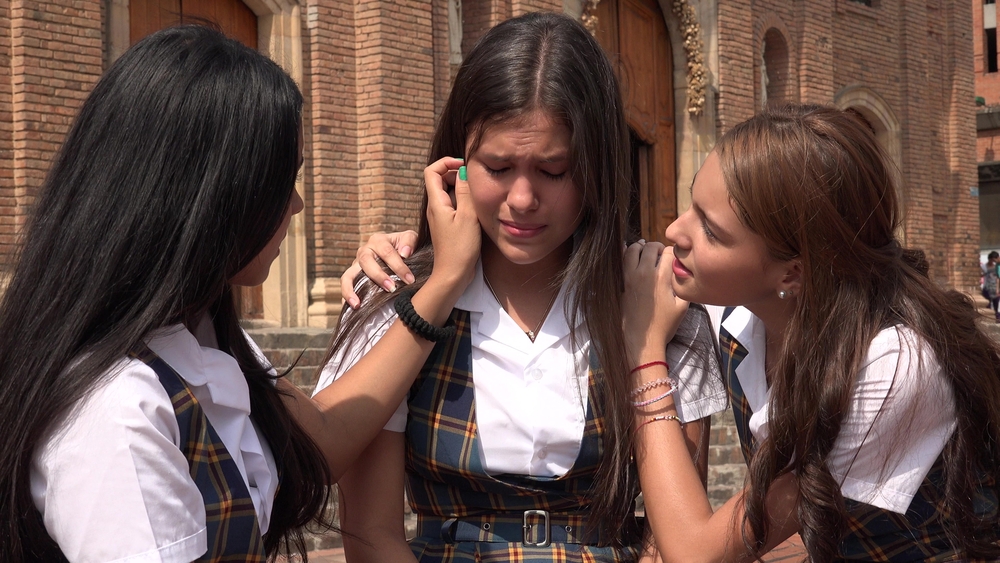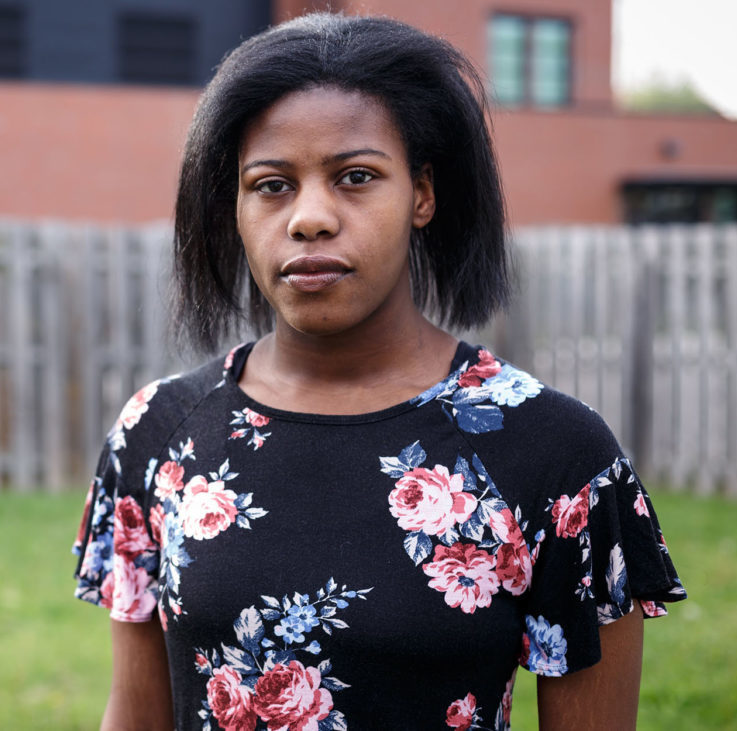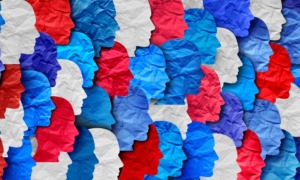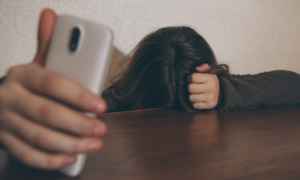
cheapbooks/Shutterstock
.
The nation’s conversation about mental illness and school shootings has changed the way I listen to my classmates.
It’s changed the way I read and everything I watch.

Ayisat Bisiriyu
As a high school freshman at Winchester Thurston School, I have personally experienced the boom in conversations surrounding mental illness this year. We discuss it in class, and my friends and I talk about it. Growing up, I never realized how much what I see as a typical daily task or situation could affect another person who is struggling with mental illness. I never considered how one of my peers might negatively react to the things I am saying. I never thought that I would be in a situation where what I say might lead to another person taking their own life. The thought of it horrifies me.
I believe teenagers today are feeling a pressure they have never experienced before.
Our generation uses social media more than any other generation before us. It’s easy to showcase our accomplishments and broadcast our highest moments. We are mostly exposed to our fellow students’ moments of happiness, making it hard for some not to dwell on what they wish was different about their lives. I’ve seen the effects of people who look at pictures of a toned girl in a bathing suit and then begin to hate their bodies. I have seen what happens after classmates look at pictures of classmates celebrating admission to Harvard. They ask themselves why they’re not good enough to get into a school like that.
The effects are brutal. Some students may feel like they’re worthless, like no matter how many times they go to the gym, they’ll never look like that fit girl, and no matter how many hours they spend studying, they’ll never get into that Ivy League school.
Are they really joking?
When I was younger, I didn’t know what it meant to be depressed, what it meant to have anxiety, what it meant to suffer from obsessive-compulsive disorder. Once I began reading material online, I realized that there was such a thing as mental illness. To me, there was only happy and sad, good and bad. So when I was in eighth and ninth grades, I was surprised to see how much people were willing to joke about and make light of mental health issues.
It makes me anxious when I hear a person laugh about how “bleach is the best drink to drink” and how “they’d rather kill themselves than go to math.” These jokes seemed innocent, but I no longer know who’s joking and who’s crying on the inside.
I no longer know who wants me to laugh and who wants me to ask them how things are really going. I simply do not know what to do in many of these situations. That scares me. Sometimes I feel as though I’m responsible for someone’s mental health. Am I? Should I be?
I also have to be wary of other forms of pain-inducing comments. When I hear others flippantly tell classmates to “kill themselves” because they like anime, or to “stay asleep and never wake up” because they said they didn’t like rap music, I have no idea what to do in those situations.
We need more information
It is important for teenagers, especially today’s teenagers, to know how to deal with these situations. They should know what to do when their friend makes an out-of-character comment or when a student tells another student to kill themselves.
I think that we, as a society, are getting a bit better at educating our youth about mental health issues and creating an environment where our children know how to approach these issues. All over Pittsburgh, I see programs and literature and events that are helping to end the stigma around mental illness by teaching people how to get help. Resources such as Cure Stigma, The Trevor Project and The Icarus Project really can help people who are going through crisis.
But I don’t think these programs are going to end mental illness in teenagers. Adults, teenagers and children alike must learn about the various illnesses so that they can react in a way that is productive and supportive.
No one should feel like they’re alone with their mental illness, and no one should feel hopeless to help someone experiencing it.
Awareness of this topic needs to be raised in schools and other teen environments so that people can understand what to do in these conversations. Don’t shelter us. We need to know.
Ayisat Bisiriyu, 14, attends Winchester Thurston School and loves to read, write, act and cook. She can be reached at bisiriyua@winchesterthurston.org and @ayisat_igy on Twitter.
This column was written for Public Source.































